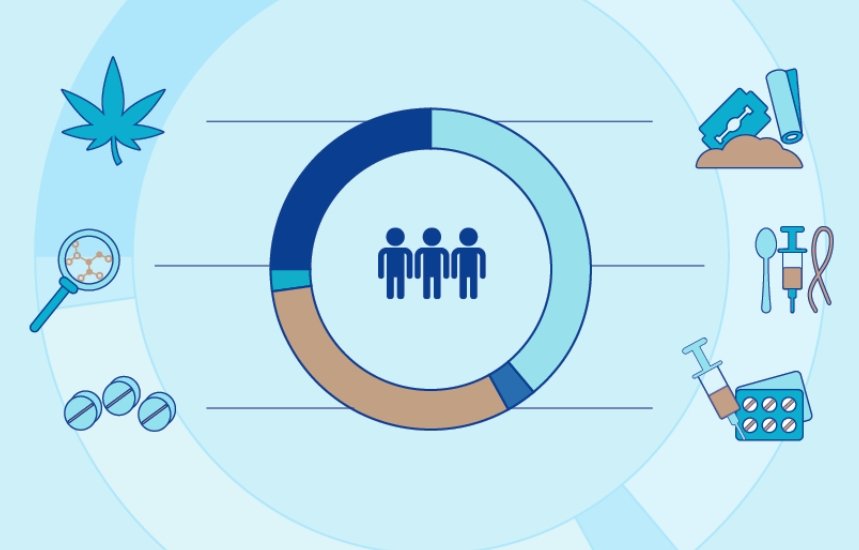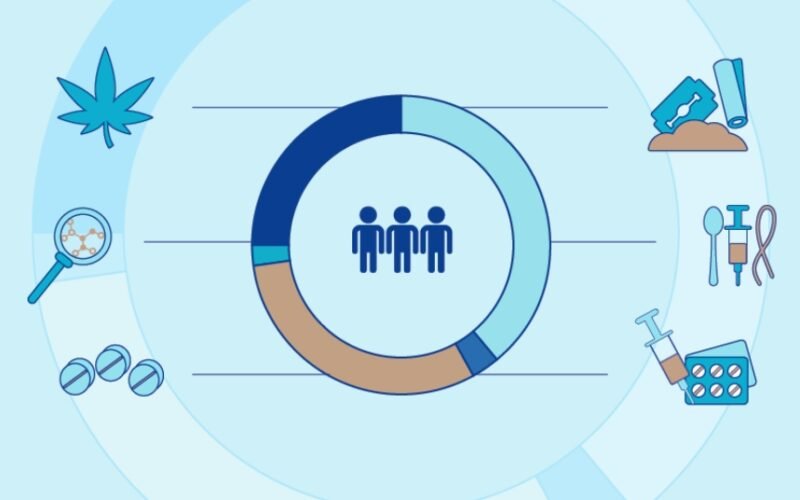The recent political shift to the right in Europe has raised questions about the future of the continent’s harm reduction approach to illicit drugs. The European Union Drugs Agency (EUDA), which recently replaced the European Monitoring Centre for Drugs and Drug Addiction (EMCDDA), is at the forefront of this debate. With an increased budget and a broader remit, the EUDA aims to continue promoting evidence-based interventions and harm reduction strategies. However, the new political landscape poses significant challenges to these efforts.
The Evolution of Harm Reduction in Europe
Harm reduction has been a cornerstone of European drug policy for decades. This approach focuses on minimizing the negative health, social, and economic impacts of drug use rather than solely aiming to eliminate drug use itself. Key interventions include needle exchange programs, supervised consumption rooms, and opioid substitution therapies. These measures have been credited with reducing the spread of infectious diseases and lowering drug-related mortality rates.
The establishment of the EUDA marks a significant evolution in Europe’s approach to drug policy. The agency’s expanded mandate includes not only monitoring drug use patterns but also actively shaping policy and providing support to member states. This proactive stance is intended to address emerging challenges and ensure that harm reduction remains a central component of drug policy across the continent.

Despite the successes of harm reduction, the approach has faced criticism and resistance. Some argue that it enables drug use rather than addressing the root causes of addiction. However, proponents maintain that harm reduction is a pragmatic and humane response to the complex realities of drug use. The EUDA’s commitment to evidence-based interventions underscores the importance of continuing these efforts in the face of political opposition.
Political Shifts and Their Implications
The recent shift to the right in European politics has introduced new uncertainties for harm reduction policies. Right-wing parties often prioritize law enforcement and punitive measures over public health approaches. This ideological shift could lead to a rollback of harm reduction programs and a renewed emphasis on criminalization. Such changes would have significant implications for public health and safety.
The EUDA’s leadership has acknowledged the risks posed by the new political landscape. Executive Director Alexis Goosdeel emphasized the importance of maintaining a strong, evidence-based approach to drug policy. He highlighted the EU’s commitment to human rights and the active involvement of civil society as key components of the harm reduction framework. However, Goosdeel also noted that the agency must be prepared to adapt to changing political realities.
One potential consequence of the political shift is reduced funding for harm reduction initiatives. Budget cuts could undermine the effectiveness of programs that have proven successful in reducing drug-related harms. Additionally, increased law enforcement efforts could drive drug use further underground, making it more difficult to reach and support vulnerable populations. The EUDA will need to navigate these challenges carefully to sustain its harm reduction mission.
The Future of Harm Reduction in Europe
Looking ahead, the future of harm reduction in Europe will depend on the ability of policymakers, advocates, and the EUDA to adapt to the evolving political landscape. Continued advocacy for evidence-based approaches and the protection of human rights will be crucial. The EUDA’s role in providing support and guidance to member states will be more important than ever.
Innovation and collaboration will also play key roles in the future of harm reduction. Developing new strategies to address emerging drug trends and reaching marginalized communities will require ongoing research and cooperation. The EUDA’s commitment to anticipating future challenges and disseminating best practices will be essential in this effort.
Ultimately, the resilience of Europe’s harm reduction approach will be tested in the coming years. The political shift to the right presents significant obstacles, but it also offers an opportunity to reaffirm the value of evidence-based, humane drug policies. By staying true to its principles and adapting to new realities, the EUDA can continue to lead the way in promoting health and safety for all.




